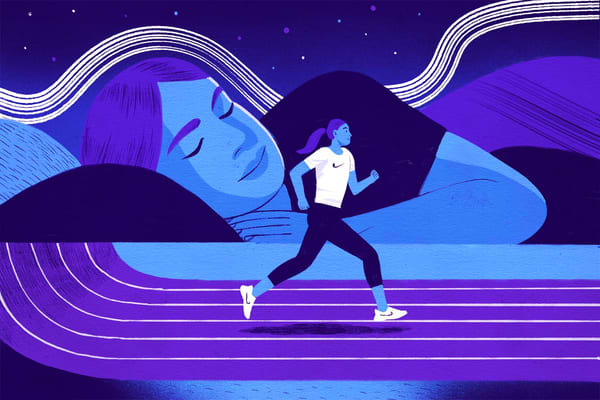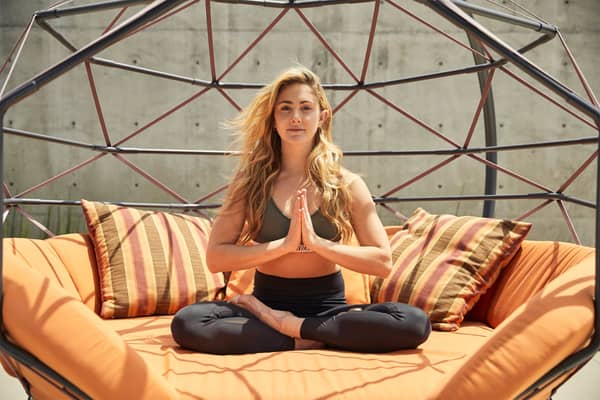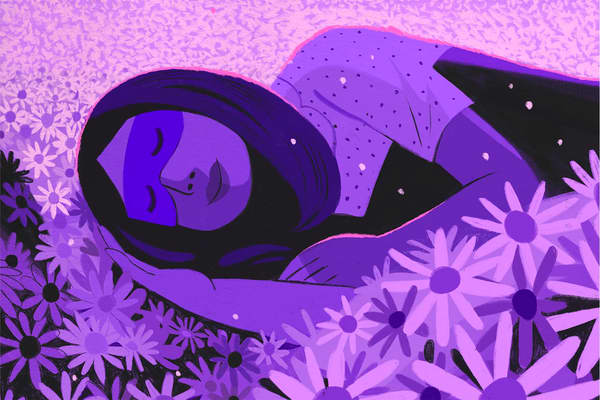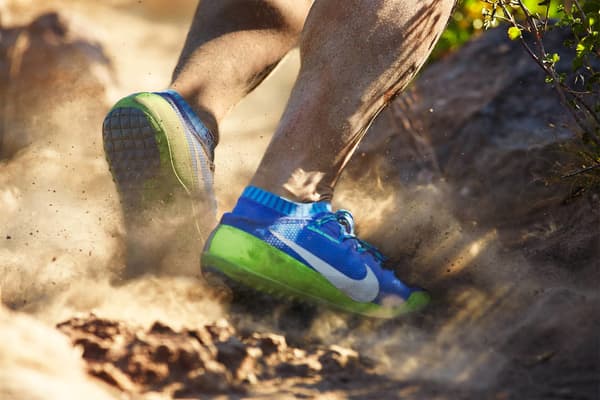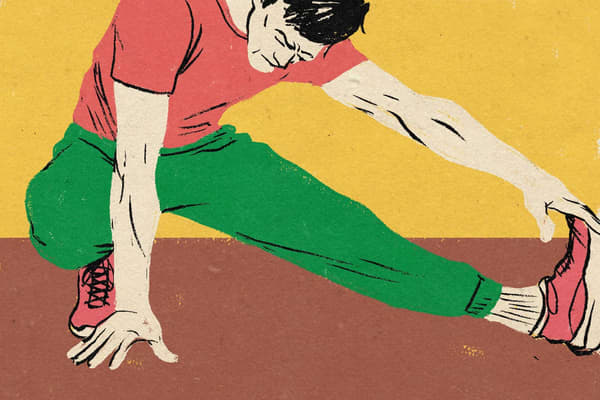What You Need To Know About Alcohol and Sleep, According to Experts
Health & Wellness
If you're going to have a drink before catching some shut-eye, consider digesting this information first.
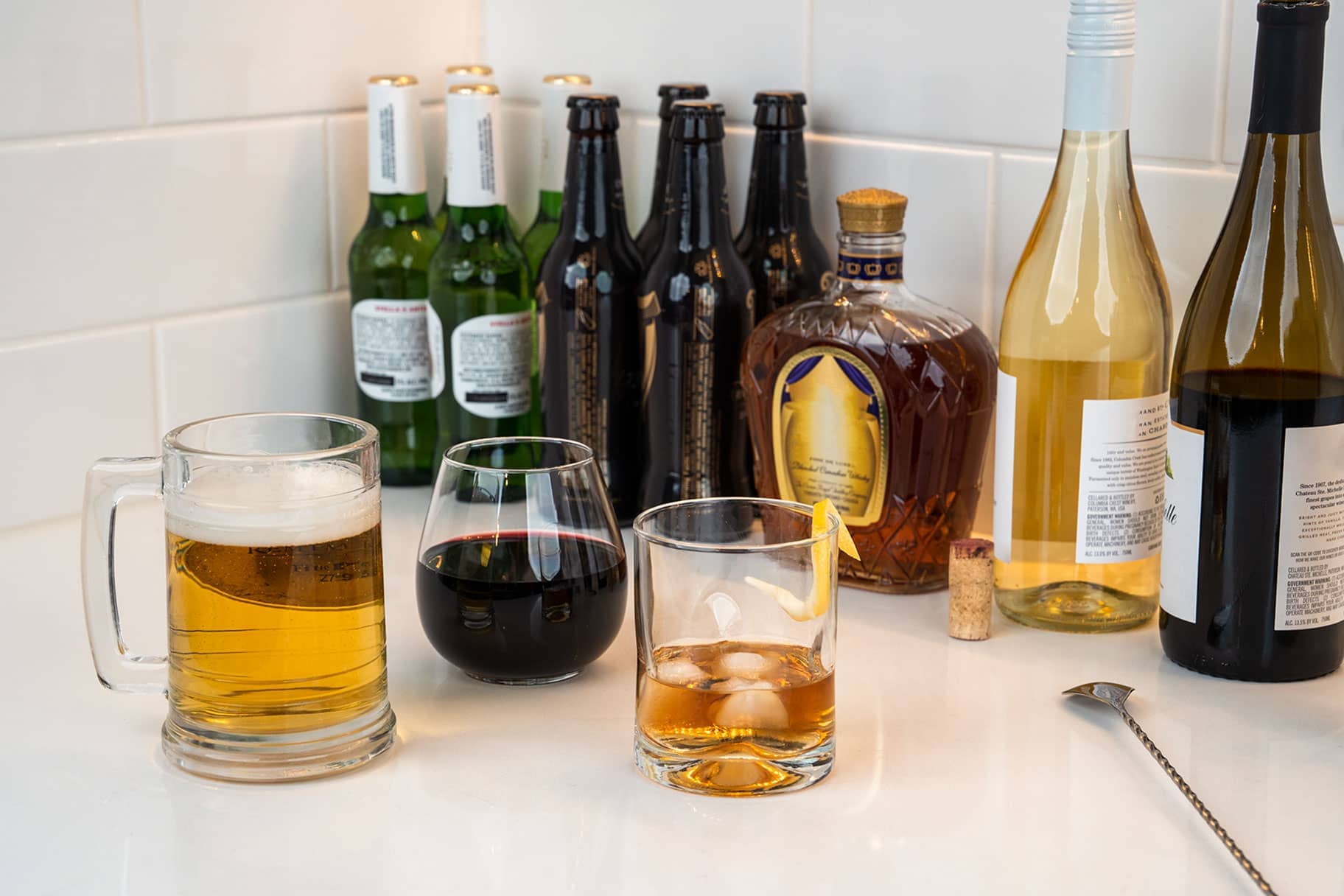
Sipping on a glass of wine or whiskey can help you drift off into dreamland quicker than without.
Problem is, this bedtime routine—and, for the most part, drinking in general—can do a number on your sleep. You may notice that you wake up feeling less refreshed and more fatigued after a night of drinking. So, what's really going on when you hit the booze before you hunker down? Does alcohol help you sleep?
"Alcohol is sedating", said Deirdre Conroy, PhD, clinical director of the Behavioral Sleep Medicine Clinic at Michigan Medicine in Ann Arbor. That means drinking can reduce the time it takes you to fall asleep.
This can be rewarding—if you can get to sleep faster after drinking alcohol, you may be apt to think of that as a positive, which can reinforce the behaviour, said Chris Winter, MD, neurologist, sleep specialist and host of the podcast "Sleep Unplugged".
"Here's what I tell my athletes and patients: don't ever associate the alcohol you're drinking with good sleep", he said. Even if you fall asleep quickly and stay asleep all night, it doesn't mean that booze is beneficial to your sleep cycle.
"If you look at what alcohol does, you'll see that it suppresses a lot of positive, restorative things about sleep", he said. In short, drinking alcohol prior to bed causes middle-of-the-night wake-ups and interferes with the most important stage of sleep. More on that below.
The Effect of Alcohol on Sleep
An individual can experience a range of reactions after drinking alcohol. Some depend on how much you've had to drink and the time the alcoholic beverages were consumed.
1. You May Fall Asleep Early
As mentioned, alcohol can elicit a sedative effect.
A 2013 review found that drinking alcohol caused people to fall asleep quickly, no matter how much the person drank. Those who drank were also less likely to wake up during the first part of the night but tended to experience disrupted sleep in the second half of their sleep cycle, which caused them to wake up.
Researchers also found that when drinking moderate or high amounts of alcohol, rapid eye movement, or REM, sleep decreases and the amount of initial, lighter stages of sleep, non-REM, increases. This can contribute to that unrefreshed feeling in the morning. For context, REM sleep is characterised as the most restorative stage of sleep and is essential for cognitive functions. These include creativity, learning and memory. A person may cycle through REM sleep (and all of the stages of sleep) between four and six times throughout the duration of sleep.
2. You May Wake Up and Have Trouble Falling Back Asleep
As mentioned, the snooze-inducing effect of alcohol doesn't last all night.
"After the body metabolises the alcohol, the sedating effect wears off, which can contribute to middle-of-the-night awakenings", Conroy said.
It's helpful to note that alcohol is also a diuretic, which can create the urge to get up and make a trip to the bathroom—disrupting your sleep cycle.
Even when you don't drink booze, waking up mid-snooze is totally normal and expected—people can wake up two to three times during sleep. In fact, there can be up to 20 mini-awakenings per hour. But when alcohol is consumed a few hours before tucking in between the sheets, it can be even more challenging to return to sleep.
3. You May Snore More
Another connection between alcohol and sleep? If you're someone who snores, you may find that you snore even more after a night of drinking.
"Alcohol is a respiratory depressant, which affects the muscles in the upper airway, making it more difficult to breathe", Winter said. Your airway is more likely to collapse, which is precisely what causes that snoring sound you hear.
These breathing disruptions also impact the quality of your sleep. Plus, snoring can be a sign of obstructive sleep apnoea, a condition where you experience short bouts of paused breathing during the night. These micro awakenings disturb sleep, so you feel more fatigued the next day and experience poor function. Drinking before bed can exacerbate all of these symptoms.
As research shows, alcohol makes it more likely that your upper airways will collapse and its sedating properties worsen pauses in breathing and make them more frequent throughout the night, which can lead to lower oxygen levels in your blood at night. One 2018 review and meta-analysis found that consuming alcohol in high amounts increased the risk of sleep apnoea by 25 percent compared to those who consumed no or lower amounts of alcohol.
4. It May Hinder Your Recovery
If you're active or training for a specific sport event, it may be worth evaluating your alcohol intake.
A 2017 study found that drinking any amount of alcohol impairs your cardiovascular system's ability to recover during the night. The more alcohol a person drank, the higher that person's heart rate was during sleep and this even occurred with small amounts of alcohol. For example, drinking one drink at night increased the heart rate by 1.4 beats per minute, while drinking three drinks per night increased the heart rate by 4 bpm.
This is likely because alcohol suppresses your parasympathetic nervous system, otherwise known as "rest and digest". For context, your parasympathetic nervous system is counter to your sympathetic nervous system, which is your fight-or-flight response. And the research found that suppression of the parasympathetic happens irrespective of someone's physical fitness.
Since alcohol reduces REM, it also depletes recovery. It's during this restorative stage of sleep where the body focuses on repairing vital tissues and cells that were damaged during exercise, for example.
If You're Going to Drink, Consider These Tips to Secure Solid Rest
You don't have to quit drinking altogether. Though, some experts are currently saying that drinking even a small amount of alcohol over time can hinder your health. Conroy suggested not becoming overly obsessive about avoiding alcohol at all costs—especially if you enjoy having a drink here and there.
"Alcohol is included in our culture in social settings and I don't want my patients to not go out ever. Social connection is so helpful for our mood and energy. You need to weigh the pros and cons of these choices", Conroy said.
Whether or not you drink alcohol is a personal choice and if it's one you make, you can adjust a few habits to decrease its effects on sleep.
1. Consume Alcohol Moderately
Moderate alcohol consumption is considered having two drinks or less per day for men and one drink (or less) per day for women, according to the Centers for Disease Control and Prevention. The more you drink in one sitting, the longer it can take for your body to metabolise that alcohol, which is why moderate drinking matters. Research even suggests that drinking alcohol slower can offset or delay the beverage's sedative effect.
2. Have a Happy Hour Drink Instead of a Nightcap
Timing when you sip on an alcoholic beverage can also help preserve the quality of your sleep cycle. Alcohol's sedating effect is the strongest in the first few hours after drinking, explained Conroy. She recommended having your last drink at least three hours before you plan to go to bed. If you've cut yourself off but are still out with friends, start hydrating with water, Winter recommended.
3. Take a Week off From Alcohol
As is the case with most things, how you respond to alcohol—and possible sleep disruptions that can go with it—is completely individual. If you have an inkling that alcohol could be affecting your sleep, Conroy recommended conducting self-experimentation.
"Go a week without alcohol to see if anything about your sleep changes. It may or may not", she said. You can go by feel, i.e. how awake or sleepy you are during the day or tune into the sleep tracking function on one of your devices (think: a fitness watch).
Words by Jessica Migala

